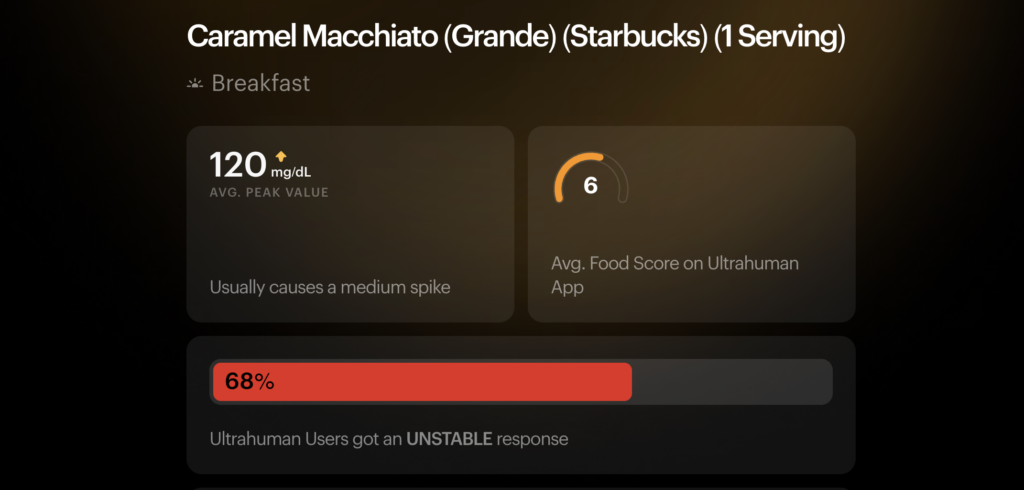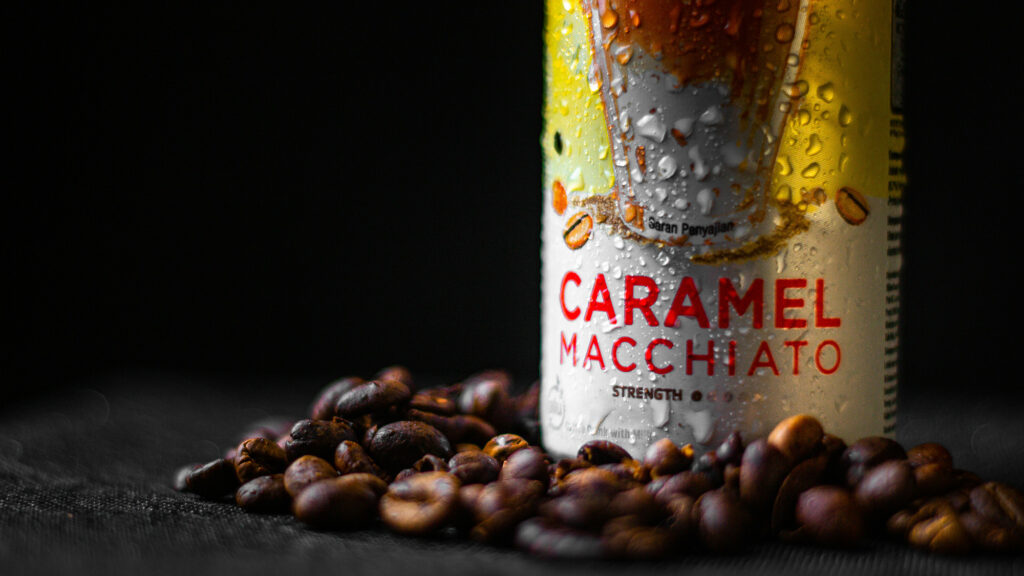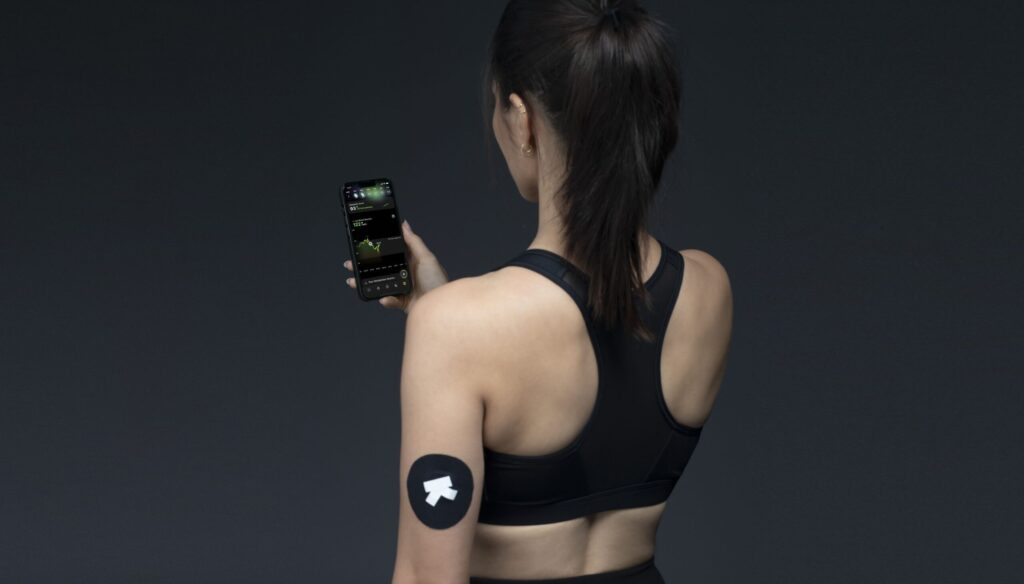The caramel macchiato may be a café staple, but beneath the coffee lies bad news for your blood sugar.
At first glance, the caramel macchiato doesn’t seem excessive. It combines milk, espresso, vanilla syrup, and caramel drizzle. But in a grande (16 oz) serving, the sugar content pushes 33 grams – most of it from added syrups.
A standard Starbucks grande caramel macchiato clocks in at around 250 kcal, primarily from the milk and syrup.
These are rapidly absorbed carbohydrates, and when consumed without protein, fat, or fiber, they lead to a sharp rise in blood glucose for most users. This is compounded by the liquid form, which digests faster than solid food.
What the OGDb tells us

Data from the Ultrahuman Food Impact Database (OGDb), which aggregates anonymized CGM and food log inputs from Ultrahuman M1 users, places the grande caramel macchiato in the ‘medium impact’ category for blood glucose.
- Average peak glucose: ~150 mg/dL
- Response stability: Unstable
- Impact category: Medium
In practical terms, this means the drink consistently causes a moderate glucose spike, and individual responses vary more than expected, even among metabolically healthy users
Can you reduce the impact?
Small adjustments can lead to meaningful improvements in glycemic response:
- Opt for a smaller size (e.g. tall instead of grande) reduces sugar load.
- Pairing with protein or fiber, such as a handful of nuts, helps blunt the spike.
- Walking post-drink, even for 10 minutes, supports glucose clearance.
- Requesting fewer pumps of syrup or skipping the caramel drizzle also makes a noticeable difference.
Is it worth the trade-off?
For users tracking their glucose closely, due to insulin resistance, prediabetes, or general metabolic goals, the caramel macchiato is probably best kept as an occasional treat rather than a daily ritual.
However, what you eat or do around the drink often changes the outcome more than the drink itself.
Summary
The caramel macchiato may look harmless, but data from Ultrahuman users tells a different story. Downsizing, pairing smartly, and adding movement can go a long way toward keeping that blood sugar curve steady.








